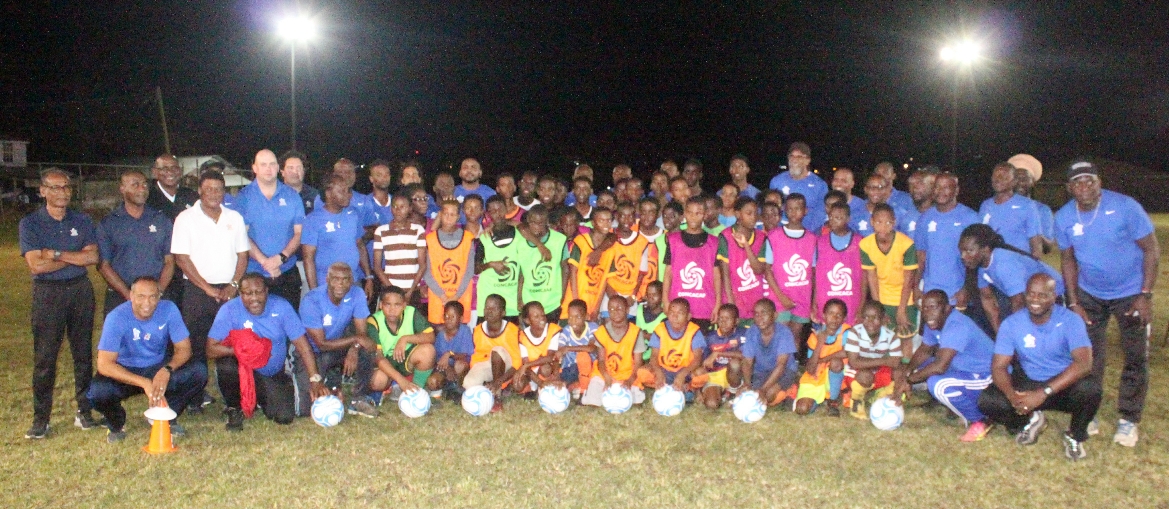(ABOVE) Instructors, participants and youth players at the CONCACAF Train the Trainer course in Barbados gather for a group photo.
BRIDGETOWN, Barbados – Elevating the quality of football throughout the region is a priority for CONCACAF.
One way to accomplish that objective is to take an active role in offering educational opportunities to coaches, so that the knowledge can be shared with colleagues and the next generation of players.
That’s exactly what happened from November 1-3 at the Parkinson Resource Centre in Barbados, where a CONCACAF Train the Trainer program was organized for 28 eager coaches from Barbados, Cayman Islands, Grenada, Guyana, Jamaica, St. Kitts & Nevis, St. Lucia, St. Vincent & the Grenadines and Trinidad & Tobago.
The workshop was conducted by seven highly-regarded instructors led by CONCACAF Caribbean development managers Etienne Siliee and Andre Waugh, with assistance from Neal Ellis, Vin Blaine (Grenada technical director), Anton Corneal (Trinidad & Tobago technical director), Jocelyn GermeJocelyn Germe (Martinique technical director) and Lenny Lake (St. Kitts & Nevis technical director).
While it was acknowledged that improving coaching education within Member Associations will boost the game’s standard, there was recognition that CONCACAF is meeting the challenges of structure and methodology through courses such as Train the Trainer.
“This program is going to give the opportunities to the Member Associations to lead the development of their own players with the support from CONCACAF,” said Corneal.
Blaine, who was named the Grenada Football Association technical director in June after serving in a similar capacity in Jamaica, believes that the program will have far-reaching effects.
“To improve coaching education within the Member Associations, we will improve the overall football within CONCACAF,” he commented.
By increasing the number of coach educators and providing them the tools to work more effectively with young people, coaching education itself will benefit.
When asked what he hopes will be the long-term impact of the Train the Trainer program, perhaps Corneal said it best, finishing: “That this is the beginning of a new era of coach education in the Caribbean and CONCACAF.”
Judging from the activities in Barbados, all is off to a great start.




















